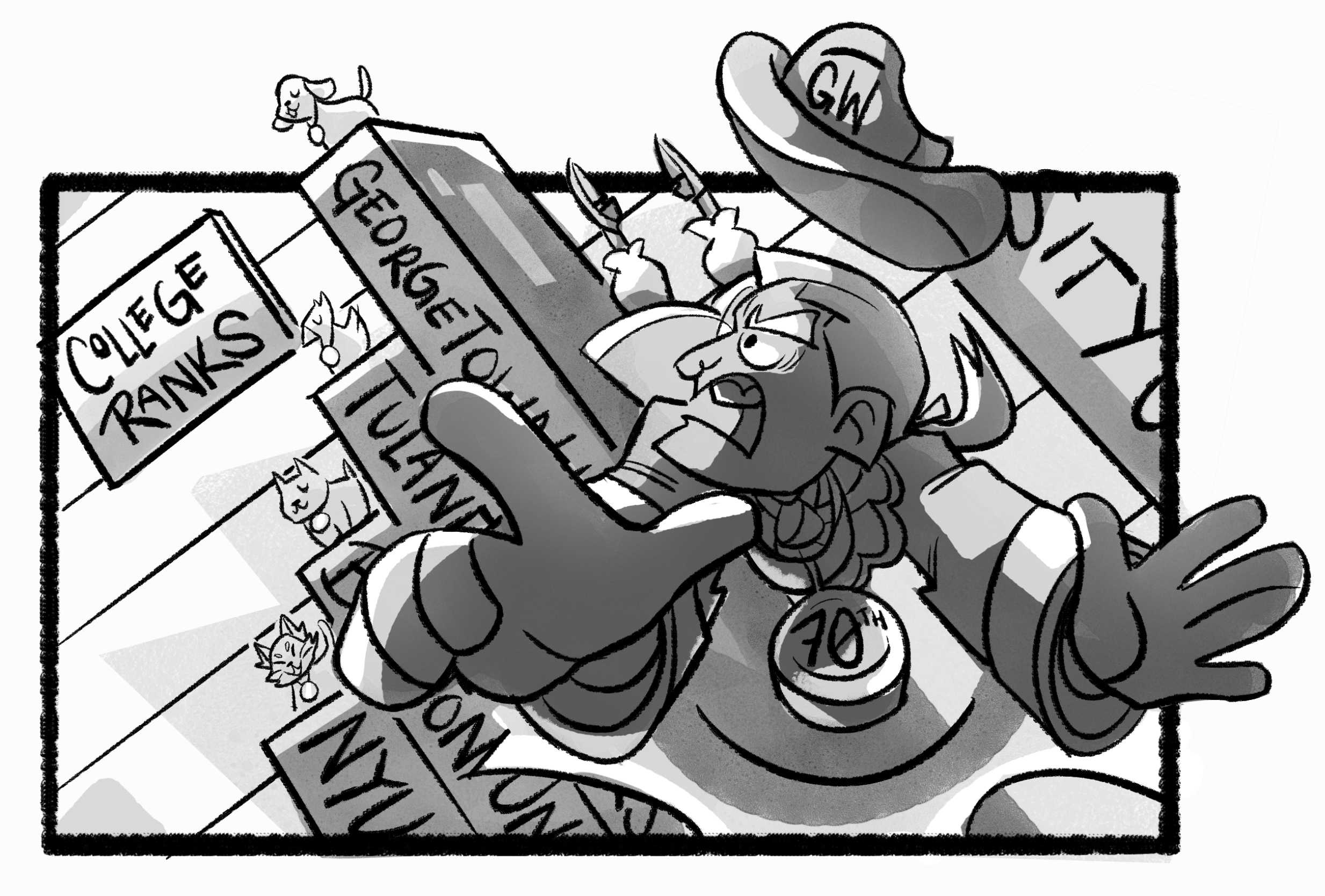For the second year in a row, GW’s ranking dropped in the U.S. News & World Report list of best national universities. The University fell another seven places down the list, from No. 63 in 2018 to No. 70 this year.
Although the trend does not affect students’ day-to-day lives, the school’s consecutive drop impacts its reputation. The decline also appeared in The Wall Street Journal and Forbes rankings, suggesting that the drop is also not based on the judgement of one list.
But more concerning is the largely dismissive response from officials after GW fell again. Administrators said rankings are one of many factors that prospective students use to determine if a school is right for them, but they did not say how they plan to reverse the trend and pointed instead to where GW climbed in rankings, like in graduation and retention rates. Officials had a similar response last year, explaining the rationale for the rankings instead of saying how they plan to address the shift. Instead of shrugging off the issue at hand, GW must be open about its backslide in rankings and state how it plans to rise back up.
GW now sits 13 spots below its closest peer school, none of which have dramatically fallen down the list. The University now needs to work harder to prove that it is worthy of being compared to 12 other well-regarded institutions like Boston and Syracuse universities. The University cannot continue to drop as its schools of comparison stay in similar standings to previous years.

Jeanna Franchesca Dela Cruz | Cartoonist
College rankings lists are often criticized for encouraging shallow opinions of schools and tending to favor historically prestigious universities. Despite the constant criticism of these lists, both prospective and current students still pay attention to the rankings. Prospective students use them to weigh schools they are considering, while current students use lists to confirm that they chose the right institution. Rightly or not, applicants and students take rankings into consideration when they settle on a school.
But students are not the only ones who care about rankings – administrators care too. In 2012, GW inflated admissions data and lied about having a need-blind policy. Prior to the two incidents, GW consistently sat around the No. 50 spot for more than a decade. Although officials loath to admit it, they too are concerned by the University’s historic drop-off in the rankings.
Administrators are not wrong when they say rankings are just one factor of many that prospective students should use when considering schools. Research has shown that college rankings are not an effective way to decide if a school is a good fit for an applicant. Other findings show that college prestige does not mean better employment outcomes. While the value of college rankings is controversial, they still give current and prospective students a sense of the quality of the institution they choose to attend.
The reputation of a college is important to families that consider college a major investment for their children. Rankings may not matter to every family, but GW is an expensive school that is only getting pricier, and how it measures up to other schools matters. Families could choose to send their student to one of GW’s peer institutions that rank higher on the rankings because they did not have the same drops as GW. Officials need to ensure families know why GW fell in the listing and prove that the University is worth the price tag.
Rankings may not be important to everyone, but they do provide many students with an idea of their school’s reputation. GW needs to lay out a plan to curb the downward slide, to continue attracting applicants and to assuage current students. Although the drop is not ideal, officials could at least be OK with admitting the University’s shortcoming and let students know they are working to get better.
Marc Chaaban, a sophomore majoring in political science, is an opinions writer.

